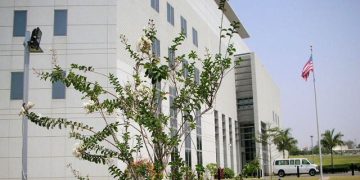The Chartered Institute of Taxation of Nigeria (CITN) has been urged to support the Federal Inland Revenue Service (FIRS) in its drive towards full digitalisation of tax administrative processes.
Vice President, Yemi Osinbajo SAN, made this call in his speech at the Chartered Institute of Taxation of Nigeria’s (CITN) 24th Annual Tax Conference held at the International Conference Centre, Abuja.
The Vice President was represented at the event by the Executive Chairman of the FIRS, Muhammad Nami, who delivered the address on his behalf.
Professor Osinbajo noted that the theme for the tax conference, “Global Disruption, Taxation and Digitalisation: Implication for Socio-Economic Development” aptly captures the prevailing realities within the national and global fiscal space.
He said:
Nigeria’s economy is fast digitalising. The digitalisation of the Nigerian economy means that the ways and manners of organising and doing businesses have changed. Indeed, the radical changes brought about by digitalisation have displaced the traditional approach to tax administration. Consequently, the digitalisation of tax administration is unavoidable, that is why our government has continued to heavily invest in the automation of tax administrative processes and digital infrastructure.
He further noted that the government had provided the enabling environment for digitalised tax administration by making necessary tax policy changes, developing rules for taxation of the digital economy, enactment of required legislation, and providing necessary political backing for the team negotiating the new international tax rules for the digitalised economy.
The Vice President urged the institute to see its role in the society as a pillar for the country’s socio-economic development.
He noted:
The possible impact of non-compliance by taxpayers—whom you hold briefs for—on the government’s revenue and the larger society is crucial and must be given topmost priority while holding briefs for them.
In doing so, you must always bear in mind the pronouncement of the Court of Appeal in Phoenix Motors v. National Provident Fund Management Board (1993) that it is in the best interest of the society at large that government be in revenue.
It is through this prism that I see your Institute as a pillar for the socio-economic development of Nigeria and the emancipation of the downtrodden of our society. Without a doubt, your members will continue to discharge the solemn and sacred responsibility of ensuring that the interest of the larger society in Nigeria is not trodden upon; and this you must do with patriotic zeal.















